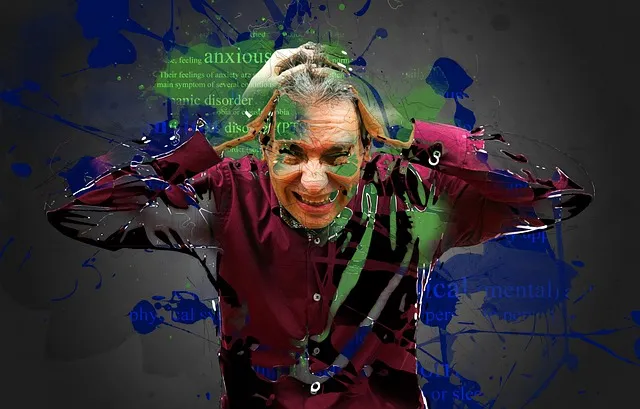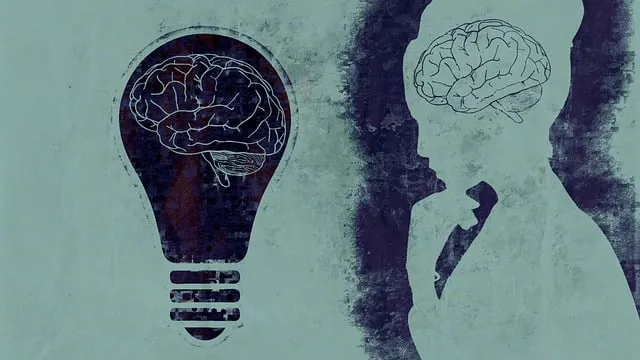The Highlands Ranch Kaiser Permanente mental health center leads efforts to combat misrepresented media portrayals of mental illness, aiming to revolutionize societal understanding and support. They achieve this through accurate, empathetic representation, initiatives like Mind Over Matter, and sharing real-life recovery stories. By integrating emotional well-being promotion techniques into media production, they inspire hope and destigmatize mental health issues, fostering a more supportive society.
Mental illness representation in media significantly impacts public perception and understanding. This article delves into the challenges posed by current media portrayals, often characterized by stereotypes and inaccuracies. We explore the power of real-life stories as a tool for change, offering strategies to enhance media literacy and raise awareness among the general public. Furthermore, we highlight the vital role of organizations like Highlands Ranch Kaiser Permanente mental health center in promoting accurate and compassionate mental health representation in media.
- Understanding the Impact of Media Portrayal on Mental Health Perception
- The Current State: How Media Often Misrepresents Mental Illnesses
- Incorporating Real-Life Stories: A Powerful Tool for Change
- Strategies to Enhance Media Literacy and Awareness Among the Public
- The Role of Organizations Like Highlands Ranch Kaiser Permanente in Promoting Accurate Representation
Understanding the Impact of Media Portrayal on Mental Health Perception

The media plays a significant role in shaping societal perceptions about mental health, often influencing how individuals understand and respond to various conditions. Accurate and empathetic representation can foster a more supportive environment for those struggling with their emotional well-being. Conversely, stereotypes and misinformation prevalent in media narratives can lead to stigma, discrimination, and further isolation of individuals seeking help at facilities like the Highlands Ranch Kaiser Permanente mental health center.
At the core of addressing this challenge lies an emphasis on promoting accurate portrayal, encouraging conversations about mental health using techniques such as Mind Over Matter principles, and fostering positive thinking. By integrating Emotional Well-being Promotion Techniques into media production, we can create a narrative that respects the complexities of mental illness while inspiring hope and understanding. This shift in perspective has the potential to revolutionize how society engages with and supports those dealing with mental health issues.
The Current State: How Media Often Misrepresents Mental Illnesses

In today’s digital age, media plays a significant role in shaping public perception about mental illnesses. However, the current state of representation often falls short, perpetuating stereotypes and misconceptions. Television shows, movies, and news outlets frequently depict mental health conditions in an oversimplified or inaccurate manner. This misrepresented imagery can range from portraying individuals with severe psychotic disorders as solely dangerous and violent to reducing common yet complex issues like anxiety or depression to mere plot devices for dramatic effect.
The impact of these media portrayals is profound, especially considering the influence on audiences’ understanding of mental wellness. For instance, a viewer might develop a fear of seeking help due to sensationalized displays of mental illness in movies, or they may internalize harmful stereotypes that discourage open conversations about mood management and mental wellness. The Highlands Ranch Kaiser Permanente mental health center recognizes this challenge and strives to counter these misrepresentations through initiatives like the Mood Management series and their Mental Wellness Podcast Production, aiming to educate and destigmatize mental health issues while providing valuable resources for at-risk individuals and mental health professionals alike, as part of a comprehensive risk assessment strategy.
Incorporating Real-Life Stories: A Powerful Tool for Change

Incorporating real-life stories into media representation of mental illness can be a potent catalyst for change. The Highlands Ranch Kaiser Permanente mental health center has pioneered this approach, showcasing the human experience behind the diagnoses. By sharing narratives that reflect the complexities and nuances of living with mental health conditions, these stories foster empathy and understanding among viewers. This method challenges stereotypical portrayals often found in media, providing a more accurate and nuanced perspective that can lead to better public awareness and support for those struggling.
Furthermore, real-life accounts offer valuable insights into effective mood management strategies and compassion cultivation practices. They highlight successful coping mechanisms, therapeutic interventions, and the role of support systems in recovery journeys. This not only educates the audience but also empowers individuals facing similar challenges, giving them hope and a sense of community. For mental health professionals, these stories can serve as a reminder of the impact they have on their patients’ lives, encouraging them to employ evidence-based practices, including comprehensive risk assessments, tailored to each individual’s unique needs.
Strategies to Enhance Media Literacy and Awareness Among the Public

In an effort to bridge the gap between media portrayal and reality, Highlands Ranch Kaiser Permanente mental health center champions the cause of mental health awareness. Strategies like public awareness campaigns development can play a pivotal role in reshaping societal perceptions. By educating the public about various mental health conditions, their symptoms, and available support systems, these initiatives foster empathy and understanding. Incorporating real-life stories from individuals who have overcome challenges can be a powerful tool to showcase the potential for resilience building.
Moreover, integrating media literacy into educational curricula ensures that young minds are equipped with critical thinking skills to analyze media content objectively. This approach empowers them to identify stereotypes, misconceptions, and inaccurate representations of mental illness, thereby promoting more nuanced and informed discussions. Through collaborative efforts between healthcare providers, educators, and media professionals, mental health awareness can be elevated, leading to a more supportive and inclusive society.
The Role of Organizations Like Highlands Ranch Kaiser Permanente in Promoting Accurate Representation

Highlands Ranch Kaiser Permanente mental health center stands as a beacon of hope and accurate representation in the media’s portrayal of mental illness. As a leading healthcare provider, they play a pivotal role in shaping public perception by offering comprehensive services and promoting evidence-based practices. Through their dedicated team of professionals, the center provides not only treatment but also educates the community on various aspects of mental health.
By prioritizing accurate representation, Highlands Ranch Kaiser Permanente challenges stereotypical narratives often perpetuated in media. They emphasize the importance of a holistic approach to mental healthcare, incorporating risk assessment tools like those used by mental health professionals for early detection and burnout prevention. Additionally, the center fosters empathy building strategies among its staff, ensuring they can offer compassionate care while navigating complex patient scenarios.
Media representation plays a pivotal role in shaping public perception about mental illness. By highlighting real-life stories and promoting media literacy, we can challenge stereotypes and foster understanding. Organizations like Highlands Ranch Kaiser Permanente’s mental health center are at the forefront of this initiative, advocating for accurate portrayal to ensure people affected by mental illnesses receive the support and empathy they deserve. Through collaborative efforts and informed engagement, we can create a more inclusive and supportive society.






